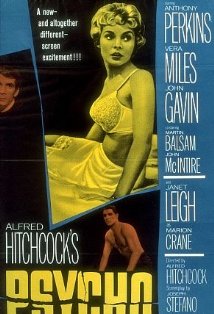HOLLYWOOD—There’s a reason why Alfred Hitchcock is praised by many as the king of suspense. He was a mastermind behind the camera and manipulated even the smallest scene to ensure a heightened level of fear for the moviegoer. While Hitchcock had been making films since the early 1920s, his 1960 masterpiece “Psycho,” which starred Anthony Perkins and Janet Leigh, changed the face of horror as we know it. For starters, while the craze of color was taking over cinema, “Psycho” was shot in black and white. That was a poignant decision that affected the overall structure of the film that immerses the viewer into the world of Norman Bates and his crazed “mother.”
The film opens with a menacing original score that sends chills down the spine. Music plays a critical role in creating suspense in a horror film, anyone who doubts that should see John Carpenter’s 1978 classic “Halloween”; it creates a sense of dread for anyone who hears it. “Psycho” is the first film of its kind. It was dark, gripping and had a well conceived story. Audiences hadn’t seen anything like it before and because of that, it gave birth to several psychopaths who have been idolized on the screen (Hannibal Lecter, Leatherface and Michael Myers).
The story revolves around Marion Crane (Janet Leigh) who has just stolen a surmountable amount of cash from her employer and is on the run. To elude authorities, she trades in her vehicle for a new one and finds herself at the elusive Bates Motel during a terrible storm. It is here that she meets the manager, Norman Bates (Anthony Perkins) and they build a relationship. The viewer is made to believe that Norman is a decent guy, but things take a turn for the worse when conversations arise about his “mother.” The audience discovers Norman isn’t who he appears to be after seeing him watch Marionundress in her bedroom; there’s something unsettling about this guy.
Shockwaves were sent to audiences in the climatic shower scene whereMarion is stabbed to death by Bates’s mother. The scene was filmed with such precision and caution. Hitchcock played with the element of time by carefully building to the moment, which created a heightened level of suspense for the viewer. It was a defining moment not only in horror, but in cinema. Never before had viewers seen the star of a picture killed before the movie ended. The ironic thing is that the only other film to play with that notion was the opening sequence of the 1996 thriller “Scream” that saw actress Drew Barrymore’s demise at the beginning of the movie.
The film continues the exploration of Norman’s crazed mother when Marion’s sister, Lila (Vera Miles) goes looking for her. She finds herself face-to-face with none other than Norman’s mother who turns out to be Norman dressed in her clothing. That spoiler only makes more sense as to why Hitchcock didn’t allow viewers to attend the screening of his film late; he didn’t want any spoilers disclosed to the public and rightly so. A twist that huge should never be revealed to anyone. It’s like seeing “The Sixth Sense” and knowing that Bruce Willis’s character is dead the entire time.
“Psycho” is that horror film that remains a classic not only because of its story elements, but because of its desire to not give the audience what it expects. The villain is to be destroyed in the end, but that doesn’t happen here. The heroine is supposed to survive, but that doesn’t happen either. I’ve only seen the film a total of three times in my entire cinematic endeavors, but each time I see the film, I feel like I’m watching it for the very first time. I’m so easily sutured into this mystery, it’s scary to watch. Norman Bates was mentally disturbed; not only did he disguise himself as his mother, he held conversations with her as if she was present. He will forever remain a cinematic villain on the screen. The shower scene in the movie to this day causes many people to think twice about taking a shower in a motel and at home. So do yourself a favor this Halloween and watch “Psycho”; the film that defines horror as we know it!






